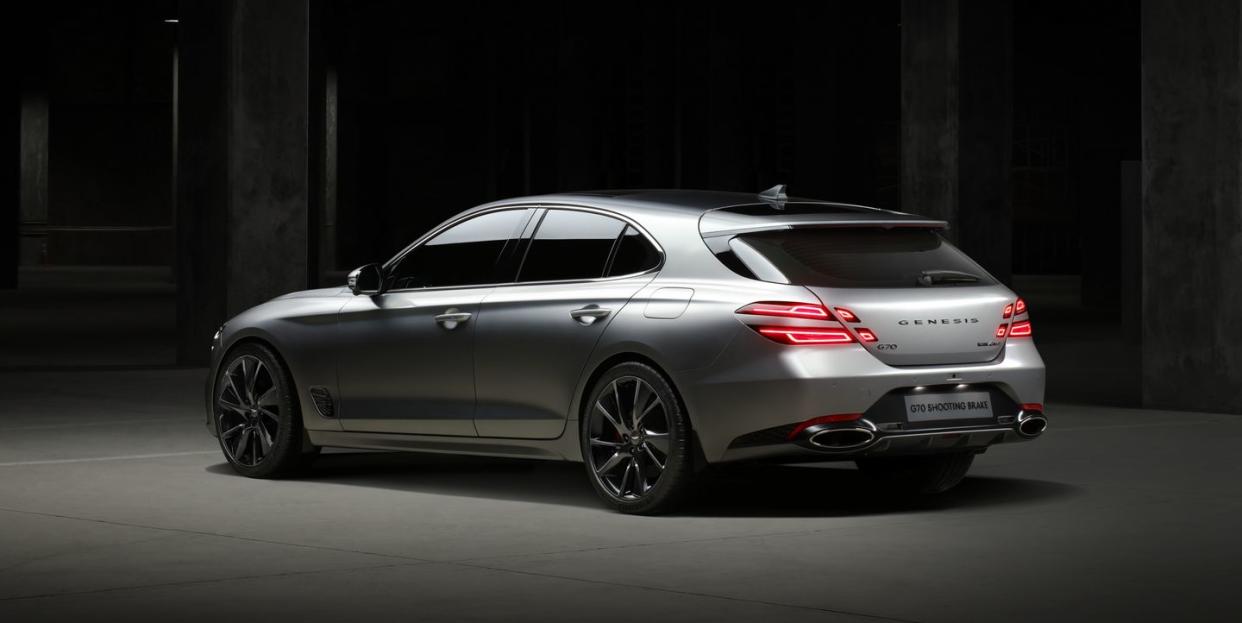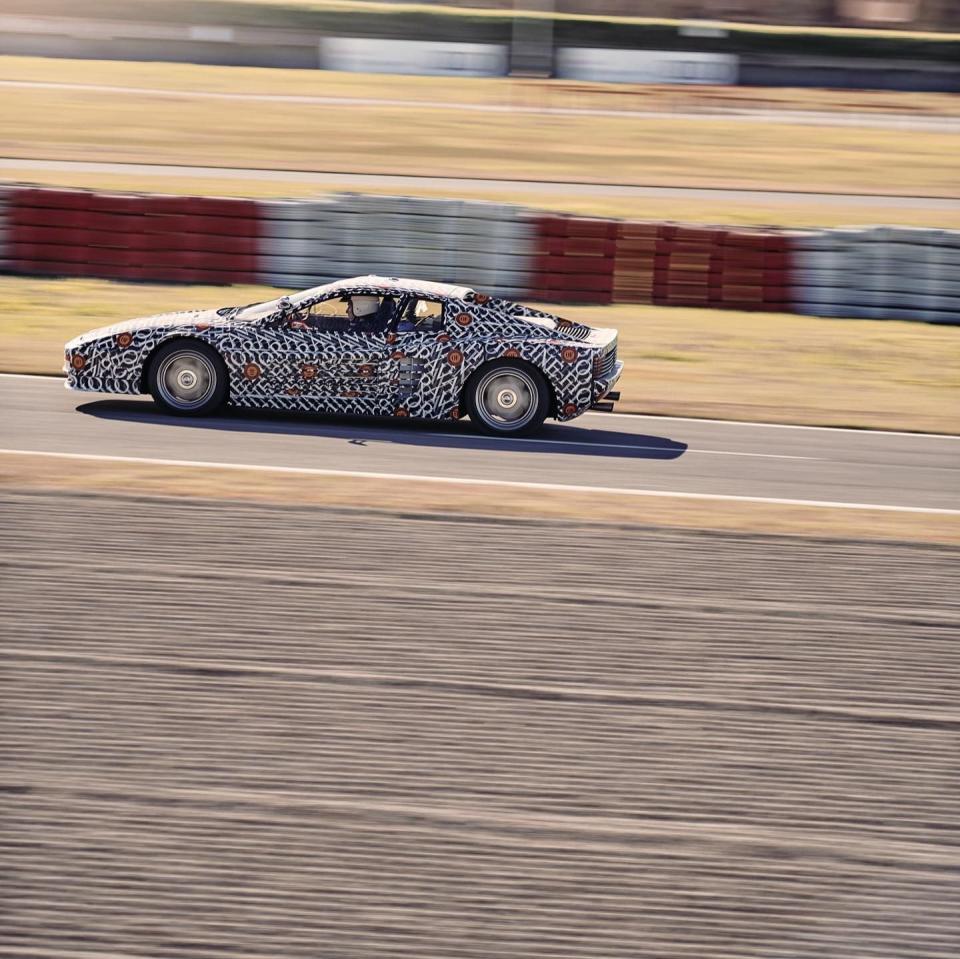This Week in Cars: There's a Genesis G70 Wagon and a Gas Shortage

Used-car prices were up 10 percent in April 2021 compared to March, the largest single-month increase since at least 1953. That increase accounted for more than a third of the 0.8 percent hike in the Consumer Price Index, a tool the government uses to measure inflation. The sudden interest in used cars is being driven by the shortage of new cars due to the semiconductor shortage, which may last through the end of the year or even into 2022.
This Week in Sheetmetal
Porsche announced plans for a Porsche Macan EV with more range than the 227 miles of EPA-estimated range currently available in the Porsche Taycan. The Macan EV is expected to hit the market in 2023, and, even better, Porsche is also working on an electric concept based on the Boxster coupe.
Genesis revealed the sleek, beautiful G70 Shooting Brake with 40 percent more cargo space than the G70 sedan. It will share the sedan's turbo-four and twin-turbo V-6. The wagon is destined for the Europe market, but it's still fun to look at.

A Swiss tuner is working to build a modernized version of the Ferrari Testarossa. The company, led by the man who designed the original Testarossa while working at Pininfarina in the 1980s, is planning for the updated Testarossa to use a more powerful version of the 4.9-liter flat-12 to reach a top speed of 200 mph. No word yet when the car will be ready for production or how many will be built.
Subaru announced that its first EV, the Solterra, will be available in 2022. It will ride on an all-wheel-drive platform shared with Toyota and will be roughly the size of a Forester. We don't know much else now but should hear more by the end of the year.
Don't Panic
The Colonial Pipeline, which supplies 45 percent of the East Coast's gasoline, was shut down this week after a cyberattack late last week. The company paid the hackers roughly $5 million in ransom (apparently against the government's advice) and said on Wednesday that it was working to restore service. But in the meantime, panicked customers in the Southeast started hoarding gasoline in all kinds of absurd containers, including large Tupperware bins and plastic garbage bags.
A Hummer burst into flames yesterday right after firefighters say the driver filled up four 5-gallon containers of gasoline in Citrus County. https://t.co/Xa71N9zMoD pic.twitter.com/RILzVjPYXo
— WFLA NEWS (@WFLA) May 13, 2021
Never mind how one would get gas out of a plastic bag and into a vehicle; gasoline can dissolve some kinds of plastic, so those panic buyers may have quickly found themselves with a dangerous mess on their hands. One would-be hoarder learned about the folly of stockpiling combustible liquids when the fuel they'd packed into a Hummer ignited. The car was destroyed in the resulting fire. We've said it before, but we'll say it one more time. Don’t be like these people.

Elon's Big Week
It was another roller coaster of a week for Elon Musk. Musk hosted Saturday Night Live last week, in what turned out to be the third-most-watched episode of the season so far. During the show, Musk (in character) referred to the cryptocurrency dogecoin as a "hustle," which sent the currency's value plummeting. On Tuesday, Musk asked his Twitter followers whether Tesla should allow customers to pay for its cars using the coin (voters responded overwhelmingly in the affirmative), and the value shot up again. If we knew the SEC was reading our Twitter feed, we'd be a little more careful.
Later in the week, Musk backtracked on a plan to allow customers to purchase Teslas with a different cryptocurrency, bitcoin, which he says Tesla will no longer use for transactions. The company had previously disclosed it held $1.5 billion worth of bitcoin, though they likely hold considerably less now, because the currency's value dropped 10 percent in the wake of the news. Musk said the decision to stop using bitcoin was based on the large amount of greenhouse-gas emissions created by the bitcoin mining process (don't ask). He said Tesla, which is profitable thanks to its practice of selling carbon credits to polluter companies, would reconsider the bitcoin ban if the currency's carbon footprint were to shrink.
Oh, and that fatal Tesla crash in Texas last month? Turns out the car wasn't on Autopilot after all.
Further Reading
The New York Times thinks that the EV bubble is about to burst, as investors begin to shy away from unproven EV startups.
Almost paradoxically, the paper ran a separate report this week on the rush to develop U.S.-based sources of lithium to help power the coming glut of EVs.
If schadenfreude is your thing, read this report from the Wall Street Journal about the anxious car dealers heading into car-buying season with a fraction of their usual inventory.
Or read about the Daimler CEO's warning that the shift to electric vehicles will result in significant job losses, especially in plants that currently build engines.
You Might Also Like

